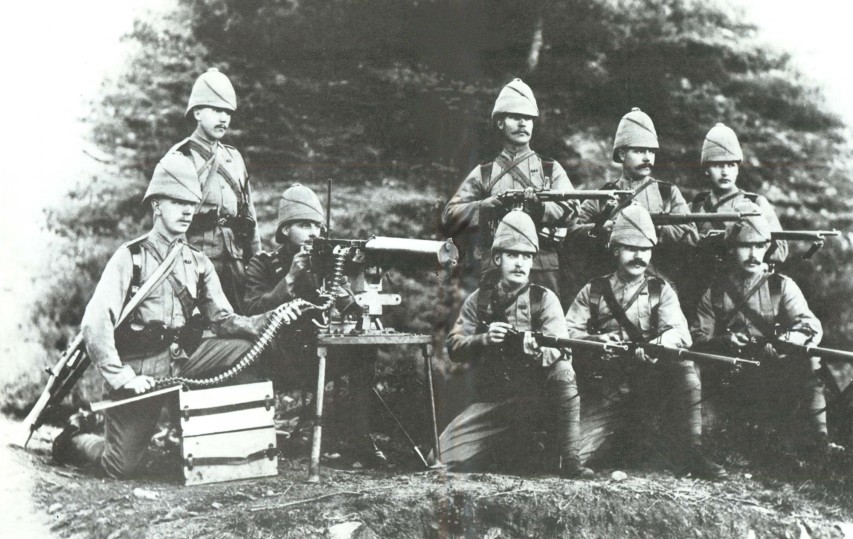 Vikings quarterback Teddy Bridgewater hasn’t set the league on fire, but he’s still learning and improving his game (with the occasional regression, like all rookie quarterbacks). He played well enough on Sunday against the Carolina Panthers to get a nomination for rookie of the week honours for 15 of 21, 138 yards, two touchdowns and a career high 120.7 passer rating.
Vikings quarterback Teddy Bridgewater hasn’t set the league on fire, but he’s still learning and improving his game (with the occasional regression, like all rookie quarterbacks). He played well enough on Sunday against the Carolina Panthers to get a nomination for rookie of the week honours for 15 of 21, 138 yards, two touchdowns and a career high 120.7 passer rating.
ESPN‘s Ben Goessling looks at Teddy’s play in the game:
Whenever he’s talked about a need to get rid of the ball faster as a rookie, Bridgewater has known the key to making that happen was the ability to identify coverages sooner. The way he operated on Sunday, in a victory over the Carolina Panthers, suggested he’s starting to figure out some of quarterbacking’s nuances.
On his 17-yard touchdown pass to Greg Jennings, Bridgewater walked to the line to see the Panthers playing off receivers Charles Johnson and Greg Jennings, who were lined up in a stack formation to the quarterback’s left. Bridgewater could see from his pre-snap read that he’d have room to hit Jennings underneath since the Panthers were guarding against a deep pass with 23 seconds left in the half. He threw a 5-yarder out to Jennings, who had room to show why he’s still one of the league’s best after the catch. Jennings made Antoine Cason miss, got to the outside and beat Bene Benwikere to the end zone, gaining 12 yards after the catch on a TD that put the Vikings up 28-6.
“I made the decision before the ball was snapped,” Bridgewater said. “The offensive line did a great job of allowing me to sit back there and make the throw, play pitch-and-catch with Greg. Greg was able to make a move and score a touchdown. Each week, I’m trying to make quicker decisions and continue to trust those guys each week.”
Meanwhile, over at the Daily Norseman, the Teddy Bridgewater Underground discovers that things can get tougher after the revolution is over:
Once we had toppled the Old Guard, I don’t think any of us realized that the transition from Revolution to Legitimate Government would be as difficult as the Revolution itself. Man, it’s easy to rile up the masses, especially when they feel they’ve been cheated out of the basics of good quarterback play their whole life. It’s easy to get them to rally around The Cause, and even to go to war over it, if necessary.
The Cause.
It started more as an Idea, but quickly grew into something that grew even faster than the most ardent revolutionaries could’ve imagined. From the moment we heard that in other lands the people enjoyed quarterback play, and we tapped in to forbidden short wave transmissions and hacked in to foreign TV feeds to confirm this was true, The Idea became The Movement. The Movement became The Cause. And The Cause became The Revolution.
¡Viva la Revolución!
But once we took over, the transition to governance wasn’t easy, far from it. Look, it’s easy to topple a government that was practically begging to be overthrown (there’s a Josh Freeman joke here somewhere, I just know it), but once that happens…there’s no one to blame but you if things go wrong. So from those heady days of overthrow and victory parades, we had to figure out how to run a country, and we had to do it without too many things going wrong.
Because when things go wrong, an idea can form. And then transition quickly to a Movement, a Cause, and then the next thing you know you’re in a ‘Quarterback Re-Education Center’ watching 16 mm game film of Joe Kapp, Fran Tarkenton, and Tommy Kramer. And you’re trying to tell yourself that the Marcus Mariota Movement isn’t a revolution, just a couple of peasants in neon green pants made by Nike.


 Vikings quarterback Teddy Bridgewater hasn’t set the league on fire, but he’s still learning and improving his game (with the occasional regression, like all rookie quarterbacks). He played well enough on Sunday against the Carolina Panthers to get a nomination for rookie of the week honours for 15 of 21, 138 yards, two touchdowns and a career high 120.7 passer rating.
Vikings quarterback Teddy Bridgewater hasn’t set the league on fire, but he’s still learning and improving his game (with the occasional regression, like all rookie quarterbacks). He played well enough on Sunday against the Carolina Panthers to get a nomination for rookie of the week honours for 15 of 21, 138 yards, two touchdowns and a career high 120.7 passer rating.

